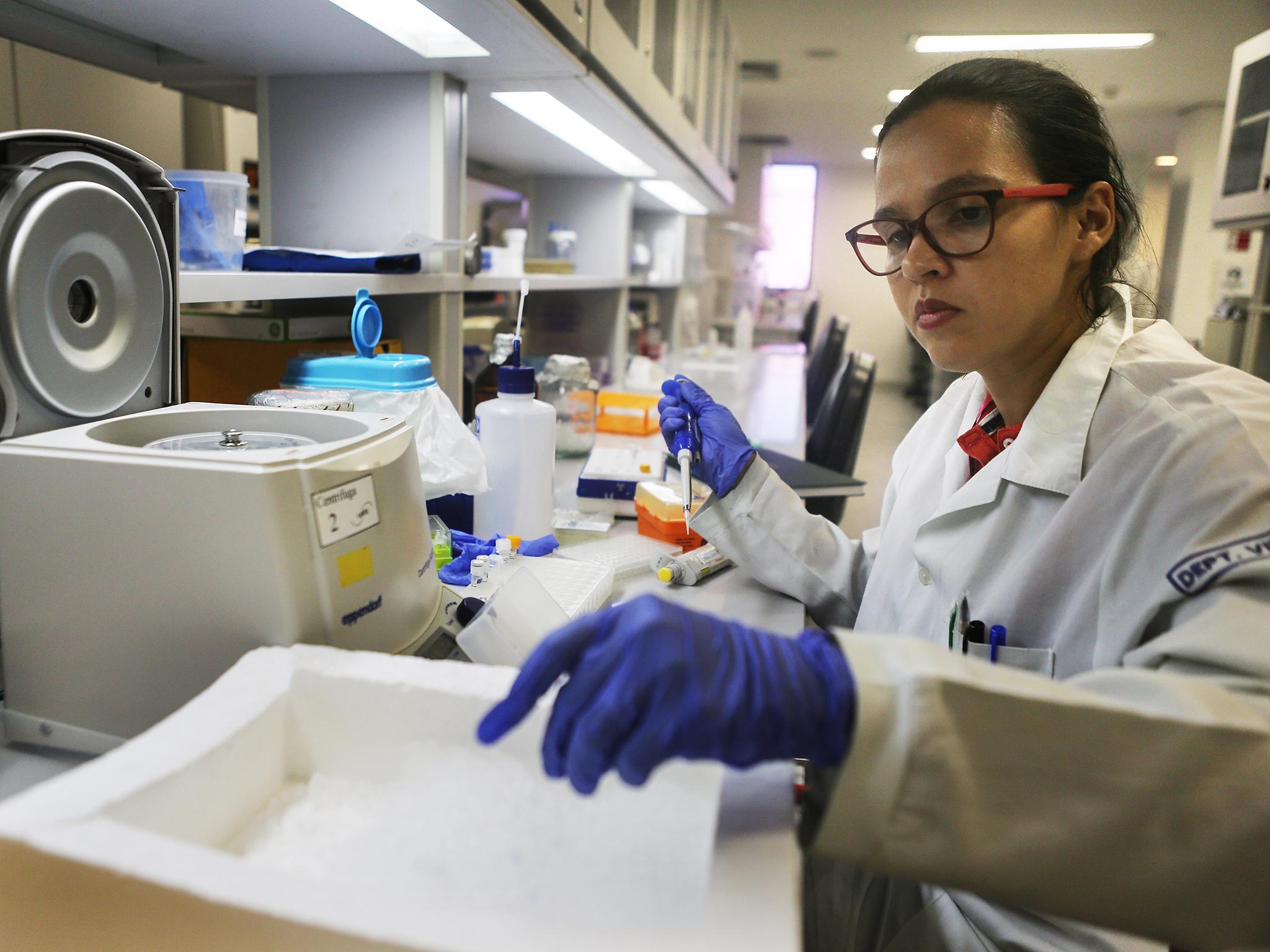Zika: First sexually transmitted case of virus recorded in UK
Public Health England says the woman is likely to have contracted the virus from her partner who had recently returned from an infected region

Your support helps us to tell the story
From reproductive rights to climate change to Big Tech, The Independent is on the ground when the story is developing. Whether it's investigating the financials of Elon Musk's pro-Trump PAC or producing our latest documentary, 'The A Word', which shines a light on the American women fighting for reproductive rights, we know how important it is to parse out the facts from the messaging.
At such a critical moment in US history, we need reporters on the ground. Your donation allows us to keep sending journalists to speak to both sides of the story.
The Independent is trusted by Americans across the entire political spectrum. And unlike many other quality news outlets, we choose not to lock Americans out of our reporting and analysis with paywalls. We believe quality journalism should be available to everyone, paid for by those who can afford it.
Your support makes all the difference.The first case of a person with sexually transmitted Zika virus has been recorded in the UK.
Public Health England (PHE) said they believe the woman contracted the virus through sexual contact as her partner had recently travelled from one of the affected regions.
She was not pregnant at the time of her infection and has since made a full recovery.
Of the 265 British travellers identified as being infected with the virus, the majority of cases - 190 - are associated with travel to the Caribbean, according to the figures from PHE.
Cases have been linked to travel to Barbados, Jamaica, St Lucia, Grenada, and Trinidad and Tobago.
Meanwhile, 33 cases have been linked to travel to South America and two patients have visited the heavily infected Miami-Dade region in Florida.
One case has been reported from South East Asia and another has been linked to travel to Oceania.
The mosquito-borne disease has been linked to the birth defect microcephaly, which means babies are born with abnormally small heads. It has been endemic in Latin America over the past few years with over 4,000 Zika-linked microcephaly cases reported in Brazil in 2015 alone.
Earlier this year, the virus’ link to microcephaly was deemed a public health emergency by the World Health Organisation.
But the mosquito which carries the virus, Aedes aegypti, is not found in the UK, lessening the risk of transmission.
Professor Dilys Morgan, Zika incident director at PHE, said: “It is important to remember that the main risk relates to travellers to countries classified as high or moderate risk for Zika infection.
“Zika infection is usually a mild, self-limiting illness, and PHE's advice is based on the fact that our main concern is to avoid infection in pregnancy, in order to avoid risk to the unborn child.”
Official guidelines warn men to use condoms for at least six months after travelling back from an infected area.
Women should try to avoid getting pregnant for at least two months after they leave an area deemed to have a “high or moderate” risk of Zika virus transmission.
WHO officials lifted the public health emergency declaration earlier this month but warned that the virus’ link to microcephaly was still a “significant and enduring public health challenge”.
Join our commenting forum
Join thought-provoking conversations, follow other Independent readers and see their replies
Comments